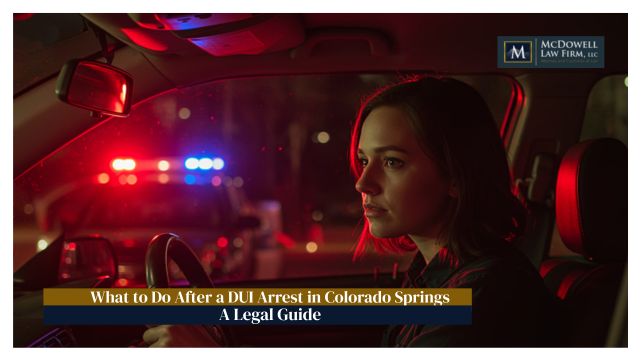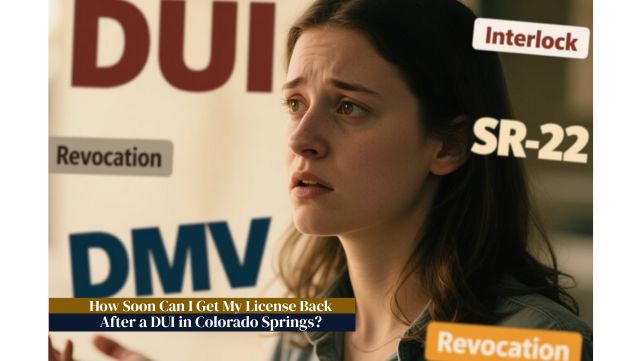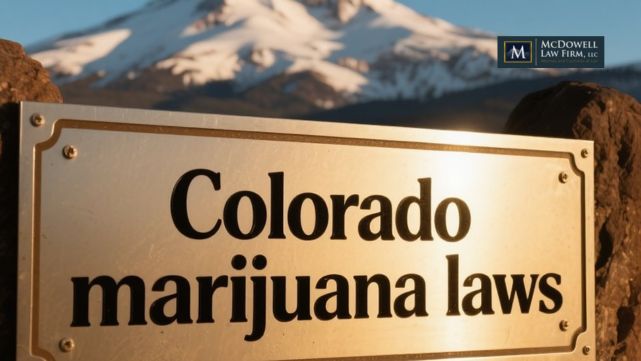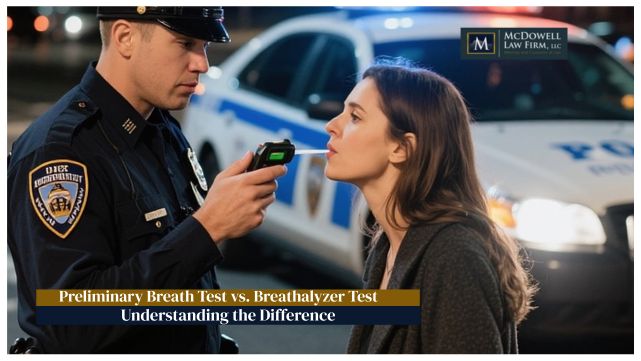Probation can feel like a second chance. Instead of serving jail or prison time, a person is allowed to live in the community under court-ordered conditions. However, that opportunity comes with strict rules. If you violate the terms of your probation in Colorado, the consequences can be serious — including the possibility of going to jail, or even prison in felony matters.
In this article, we’ll explain what a probation violation is in Colorado, how probation violations happen, what you can expect at a violation hearing, and how a defense attorney can help you fight the allegations. We’ll also discuss the important difference between supervised and unsupervised probation, especially at revocation hearings.
What Is a Probation Violation in Colorado?
Probation is an alternative to incarceration where a person remains in the community under specific court-imposed conditions. Violating these terms can trigger a probation revocation process.
There are generally two main types of probation violations in Colorado:
- New Criminal Charges:
- If you are arrested or charged with a new crime while on probation, this almost always counts as a violation.
- Even if you have not been convicted of the new offense yet, the arrest alone can lead to a probation violation hearing.
- Minor traffic offenses might not count as a violation, but major ones typically will.
- Technical Violations (Failure to Follow Conditions):
- Probation comes with conditions such as:
- Attending treatment programs,
- Completing community service,
- Submitting to drug or alcohol testing,
- Meeting with your probation officer,
- Paying restitution or court fines.
- Failing to meet any of these requirements, even once, can result in a technical violation.
- For example, missing a scheduled meeting with your probation officer or testing positive for a prohibited substance are common technical violations.
- Probation comes with conditions such as:
Both types of violations are serious, but courts sometimes treat them differently. A technical violation might be viewed more leniently, especially if it is a first-time issue or due to circumstances outside your control. However, new criminal charges almost always raise the stakes significantly. This is at the discretion of your Judge. Although you might consider a violation to be minor, your Judge might consider it to be a major violation.
What Happens if You Violate Probation?
When a probation officer believes you have violated your probation, they will submit a report to the court. The judge may then issue a summons or a warrant for your arrest.
You will have to appear at a probation revocation hearing, where the judge will decide whether you did, in fact, violate your probation and, if so, what consequences you will face.
Potential outcomes include:
- Reinstatement of probation with the same terms,
- Modification of probation with additional conditions,
- Extension of your probation period,
- Revocation of probation and imposition of fines, jail or prison sentence.
In Colorado, the burden of proof at a probation revocation hearing is lower than in a criminal trial. The prosecution only needs to prove the violation by a preponderance of the evidence — meaning it is more likely than not that you violated your probation. For revocations based on new charges, the burden is beyond a reasonable doubt. So, ordinarily, the DA will ask to trail the revocation behind the new charges. Meaning they will wait until you plead guilty or are found guilty at trial on the new charges, before they proceed to hearing on the probation violation.
How Can You Fight a Probation Violation Hearing?
Fighting a probation violation is possible — and it’s where experienced legal representation becomes crucial.
Some common defense strategies include:
- Challenging the facts:
You have the right to contest the evidence. For example, if your probation officer claims you missed an appointment, your attorney might present records proving otherwise. - Attacking the underlying new charge:
If the violation is based on new criminal charges, you can argue that there was no conviction and that the charge itself should not justify revocation. - Showing good faith efforts or mitigating circumstances:
Sometimes, circumstances beyond your control lead to violations, like illness or transportation problems. Courts may be more lenient if you demonstrate that you made genuine efforts to comply. - Asking for more time to complete the conditions:
Some Judges will set a revocation over if they believe you can complete the outstanding conditions in a short period of time. In my experience, most Judges want to see probationers be successful. If you are making progress and you are close to completing your conditions, many Judges will allow additional time to complete conditions. Do NOT count on this method. Get your conditions completed on time so you don’t need to worry about asking for more time or extending probation. - Negotiating alternatives:
In some cases, your attorney can negotiate alternatives to jail, like increased supervision or treatment programs, especially if this is your first violation.
Importantly, you have the right to:
- Be represented by an attorney,
- Receive notice of the alleged violations,
- Present evidence and witnesses on your behalf,
- Cross-examine witnesses against you.
The earlier you involve an attorney, the better your chances of building a strong defense. Most criminal defense lawyers are very experienced in probation revocation matters.
Will a Defense Attorney Help in Fighting Probation Violations?
Absolutely. While some people mistakenly think a probation violation hearing is informal or not as serious as a criminal trial, that is far from the truth.
A skilled defense attorney can:
- Analyze the probation officer’s report and spot weaknesses,
- Argue for reinstatement or modification rather than revocation,
- Present mitigating evidence,
- Negotiate with the prosecution and probation department,
- Protect your rights during the hearing.
Given the serious penalties involved, having an attorney in your corner is critical. Judges have wide discretion in probation cases, and a well-prepared argument can make the difference between continued freedom and time behind bars.
Supervised vs. Unsupervised Probation at a Revocation Hearing
The role of the probation officer is especially important at a revocation hearing, and their involvement depends on whether you were placed on supervised or unsupervised probation.
Supervised Probation
- You are assigned a probation officer who actively monitors your compliance.
- The officer files regular reports with the court and is often the first to detect and report violations.
- At the revocation hearing, your probation officer typically testifies about your compliance or violations.
- Their opinion carries weight. If they recommend reinstatement or a lenient modification, judges may take that into serious consideration.
Unsupervised Probation
- You are expected to comply with the terms of probation on your own, without regular check-ins.
- Violations typically come to light only if you commit a new crime or fail to complete mandatory conditions that are tracked by the court (like failing to complete community service or pay fines).
- There may be no probation officer directly involved in your case, but court clerks and the prosecution still monitor compliance.
- At a revocation hearing the court relies more on records and documentation.
In either case, courts will consider your overall compliance and history on probation. Supervised probation violations tend to be flagged sooner and may carry more detailed reports, while unsupervised violations may give you slightly more flexibility — but either can lead to serious consequences.
Final Thoughts
Probation is an opportunity, but it comes with strict responsibilities. Violating the terms of your probation in Colorado, whether through new criminal charges or failure to complete conditions, can lead to severe consequences, including incarceration.
The good news is that a probation violation does not automatically mean you will go to jail. With the help of an experienced defense attorney, you can challenge the allegations, present mitigating evidence, and often negotiate for a better outcome.
If you’re facing a probation violation in Colorado, don’t wait. Contact the McDowell Law Firm today for a confidential consultation. We are here to protect your rights and fight for your future.






